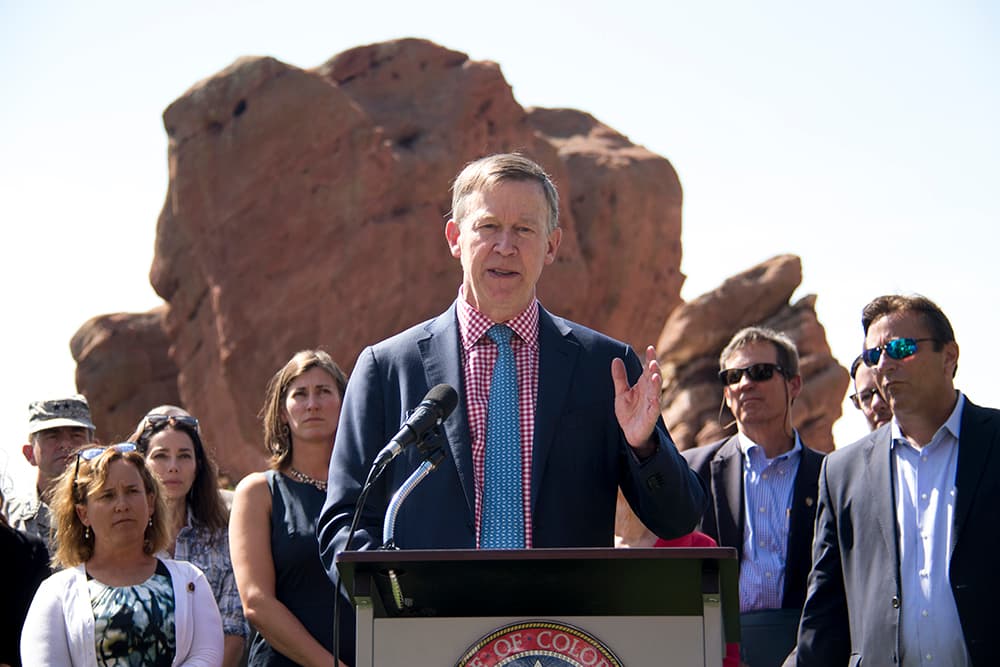
Colorado's legal marijuana industry is working — and can work better with federal collaboration, the state's governor and Republican attorney general told U.S. Attorney General Jeff Sessions in a letter Thursday.
Gov. John Hickenlooper and Attorney General Cynthia Coffman urged Sessions to collaborate with recreational pot states on law enforcement and on providing the industry access to the federal banking system.
The pot industry relies on cash because the federal government considers the drug illegal.
They told Sessions, who has floated the idea of a crackdown on marijuana legalization, that Colorado's first-in-the-nation recreational industry is robust. The state has taken steps to crack down on black market sales, diversion to other states, and youth use, they said.
"Colorado's system has become a model for other states and nations," Hickenlooper and Coffman wrote. Voter-approved sales began in 2014.
Sessions recently sent letters to the governors of Colorado, Alaska, Oregon and Washington — the first four states to legalize recreational marijuana — detailing his concerns with how effective state regulatory efforts are. All have defended their efforts.
Hickenlooper and Coffman addressed several of Sessions' concerns:
—Diversion: They noted that Colorado has sophisticated seed-to-sale tracking, has capped individual plant cultivation, banned pot growing cooperatives and provided $6 million this year for local police actions targeting the black market.
—Minors: They insisted that several surveys suggest marijuana consumption by youth has not increased since legalization — and that one federal report, sponsored by the U.S. Department of Health and Human Services, suggests it has declined. Colorado has spent more than $22 million on education, they said.
—Motor vehicle fatalities: Hickenlooper and Coffman reported the number of drivers considered by the state's highway patrol to be pot-impaired dropped by 21 percent over the first six months of 2017, compared to the same period last year.
"We stand ready to work with our federal partners to fortify what we have built," they wrote.











